Buccal Fat Removal
- Miami -
Overview
Are you self-conscious about your rounded face? Perhaps you merely want to improve your facial structure and have a more sculpted facial appearance? Whatever your reasons may be, buccal fat removal surgery could be the ideal solution for you.
What is buccal fat removal and why is it so popular right now? Buccal fat removal, also known as a bichectomy or simply cheek reduction surgery, is a cosmetic treatment performed by plastic surgeons that involves the careful removal of excess fatty tissue in the cheek area. It can help to achieve a more chiseled appearance.
This surgical procedure can be used to reduce the roundness of chipmunk cheeks caused by genetics or age-related weight gain.
In this article, we explain everything you need to know about cheek reduction surgery, including its benefits and any potential risks. We will also explore who the good candidates are for this simple procedure, what the entire process entails, and practical information about preparing for the surgery, recovery time, results, and costs.
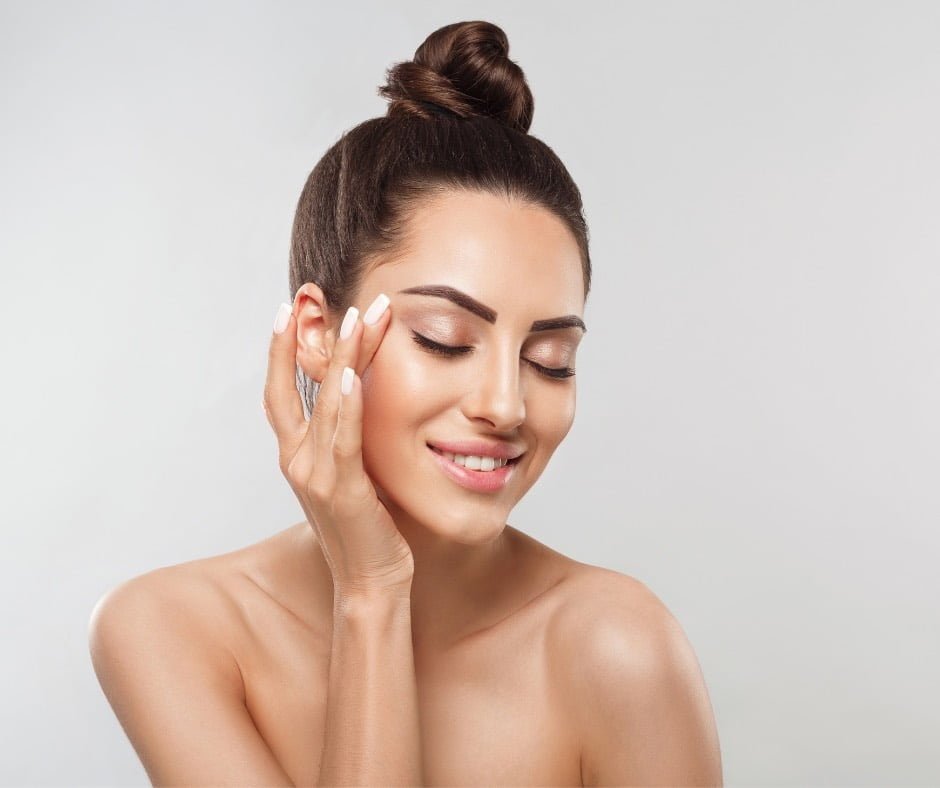
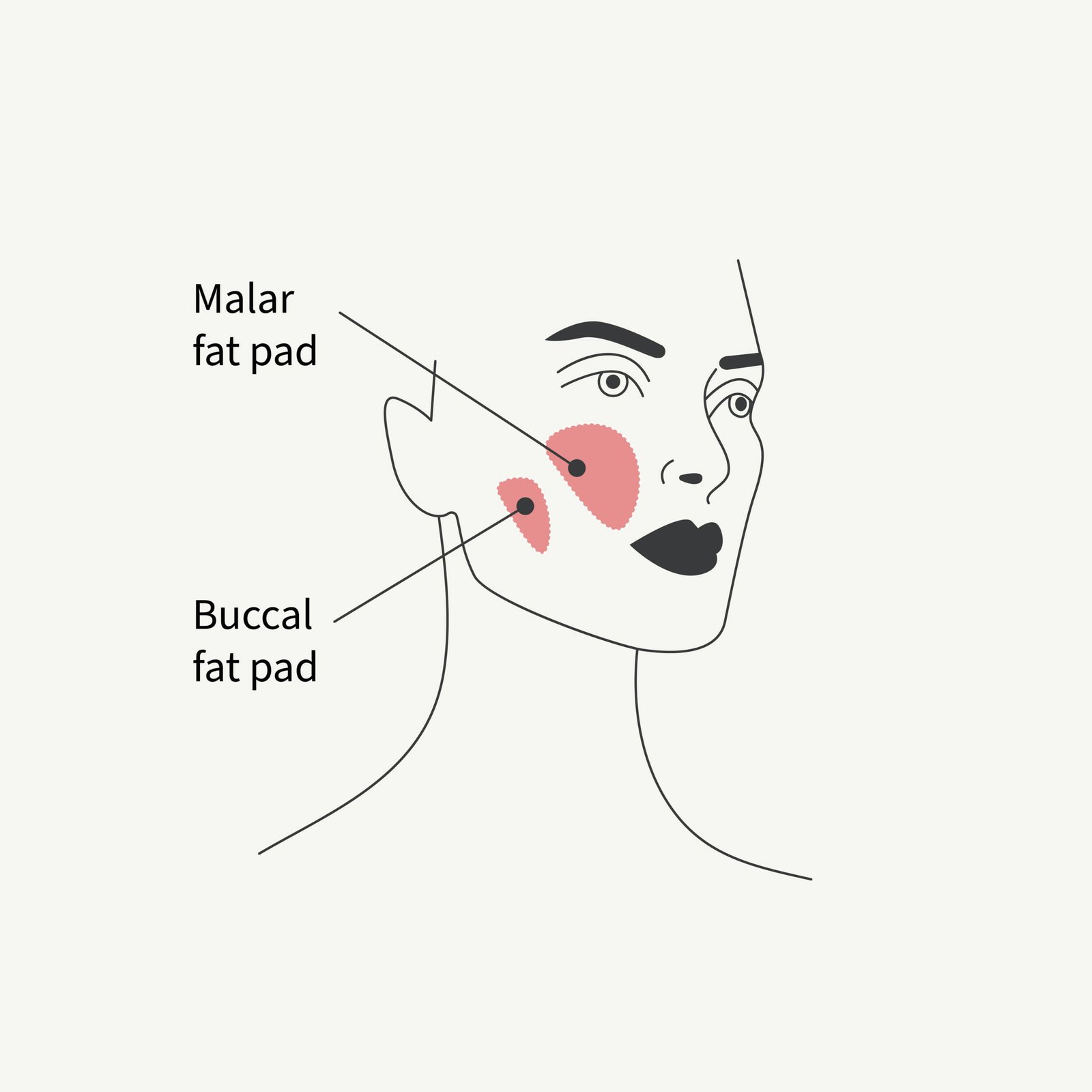
What Is Buccal Fat Pad Removal?
Buccal fat pad removal is a popular outpatient procedure that removes excess fat and helps people achieve a slimmer, more well-defined facial shape by reducing the roundness of their cheeks.
It involves surgically removing some of the larger buccal fat pads from inside the cheeks, which are fatty deposits located near the back of the jawbone.
The buccal fat pad lies just below the zygomatic arch bone, which separates it from the temporalis muscle and other soft tissues on either side of your face. During a cheek fat removal procedure, small incision are made inside your mouth near the corner of your jawline.
The plastic surgeon then uses special instruments to access and remove the required portion of the buccal fat pad to achieve the desired result.
What Are the Benefits of cheek reduction?
There are several key benefits to having a cheek reduction procedure:
- It can improve your facial features by removing any excess volume in your cheeks and creating a slimmer, more youthful fullness overall.
- It can help make your face more symmetrical if there are any discrepancies from asymmetrical fat deposits on either side. This provides you with more balanced features without changing your natural facial anatomy too much.
- As the treatment is less invasive than other procedures like facelifts, it helps create a more sculpted facial appearance while still maintaining your core individual characteristics.
- It is a safe procedure with a short recovery time compared to other more invasive operations. Typically, only local anesthesia is required, so there is no need to “go under”.
- Cheek reduction also gives psychological benefits due to increased confidence in your self-image following treatment.
Understanding Risks & Possible Complications of Buccal Fat Removal
Cheek reduction is a straightforward, low-risk treatment. Complications and undesirable side effects are rare, especially when performed by a highly skilled board certified plastic surgeon like Dr. Kachniarz. However, it is still important to be aware of the risks and potential complications, and decide whether they are acceptable for you.
Although very rare, some of the possible risks include:
- Pain or numbness at the site of the treatment
- Visible scarring at the small incision sites
- Infection and delayed healing time, frequently due to lack of proper post-operative care. You should therefore make sure you are familiar with Dr. Kachniarz’s aftercare protocol before going ahead with the treatment.
- Asymmetry
- Bleeding or fluid accumulation (seroma)
- Damage to the salivary duct
- Need for revision surgery
- Extended swelling
- Results which are not as per your desired outcome (minimal change)
- Risks from anesthesia, such as blood clots, cardiac and pulmonary complications
The above risks again highlight the importance of choosing an experienced and highly skilled board certified plastic surgeon you can trust when undergoing this treatment.
Dr. Kachniarz will explain in detail the risks beforehand, and you will review and sign a consent form to ensure that you understand what the process entails and that you accept the risks and potential complications.
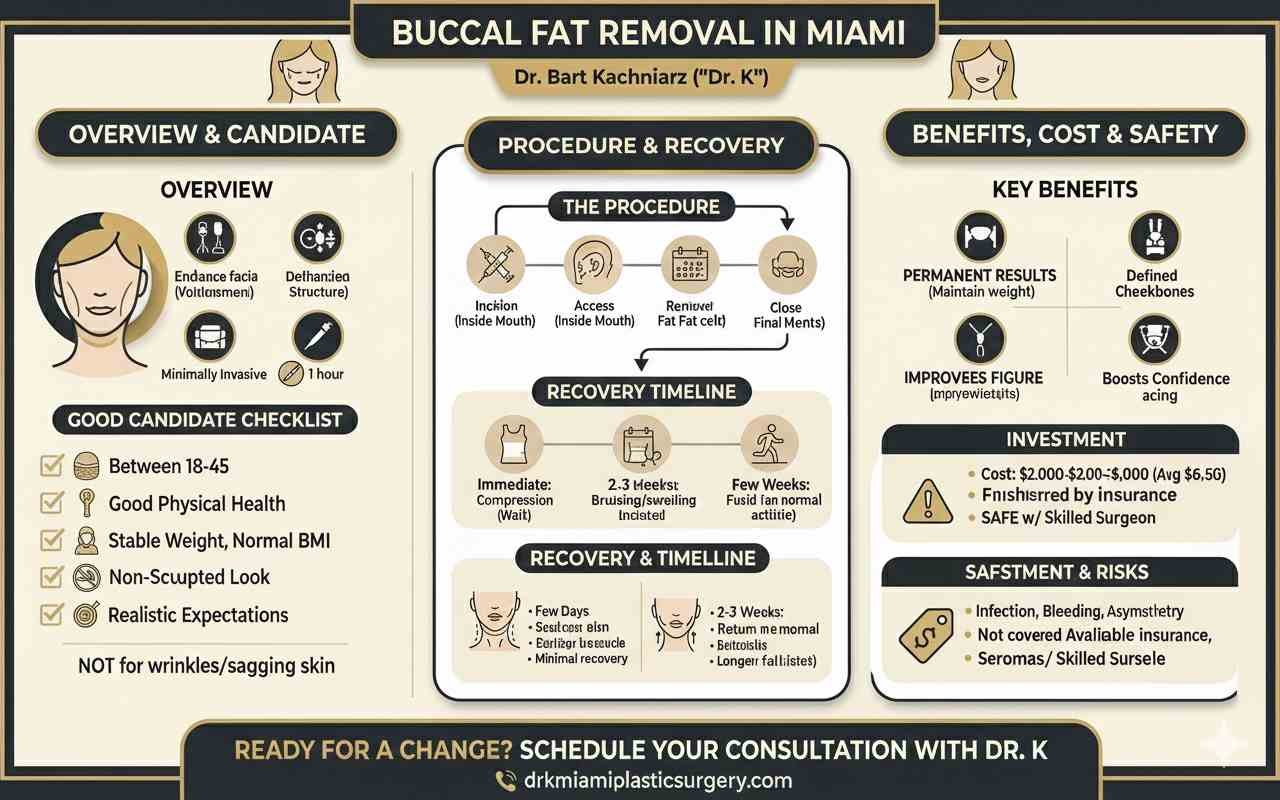
Who Are Good Candidates for Buccal Fat Pad Removal?
The decision to have a buccal fat removal procedure is completely personal. Almost anyone who has chubby cheeks can opt to undergo the procedure.
It is ideal for people who want to achieve a more sculpted facial appearance without having to undergo invasive and lengthy procedures such as cheek implants or facelifts.
It’s important to have realistic expectations about the results of buccal fat removal procedure. Patients should understand that it cannot be used to treat wrinkles or sagging skin, among certain other aesthetic issues.
You are a good candidate if:
- You are between 18 and 45 years old.
- You are in good physical health with stable weight and normal body mass index (BMI) levels.
- You are a non-smoker.
- You are concerned about the appearance of your puffy cheeks and are looking to achieve a slimmer, more defined facial shape.
- You have a realistic vision of what the treatment can do for you.
- You do not already have a very thin face; in which case the treatment is unnecessary and could leave you looking too gaunt.
Bichectomy Procedure Details
Buccal fat removal is simple and straightforward. The entire procedure typically takes about one to two hours, depending on the amount of fat being removed. During the procedure, small incisions are made inside the mouth near each cheekbone to access and remove the buccal fat pads from within.
The entire process can be completed under local or general anesthesia, meaning you won’t need intravenous sedation during surgery. Once the excess buccal fat has been removed, it cannot grow back; however, new fatty deposits may form in other areas of your face over time due to weight gain or aging.
To ensure that these fatty deposits do not become too large or noticeable after treatment, you are advised to maintain your weight as much as possible through a healthy diet and regular exercise.
The recovery period for this type of cosmetic surgery varies from person-to-person. It usually takes only a few days before you can return to your normal activities, and two to three weeks to make a complete recovery.
Swelling around the cheeks may persist for more than three weeks post-surgery but should start subsiding soon after if there are no complications or delays in the healing process.
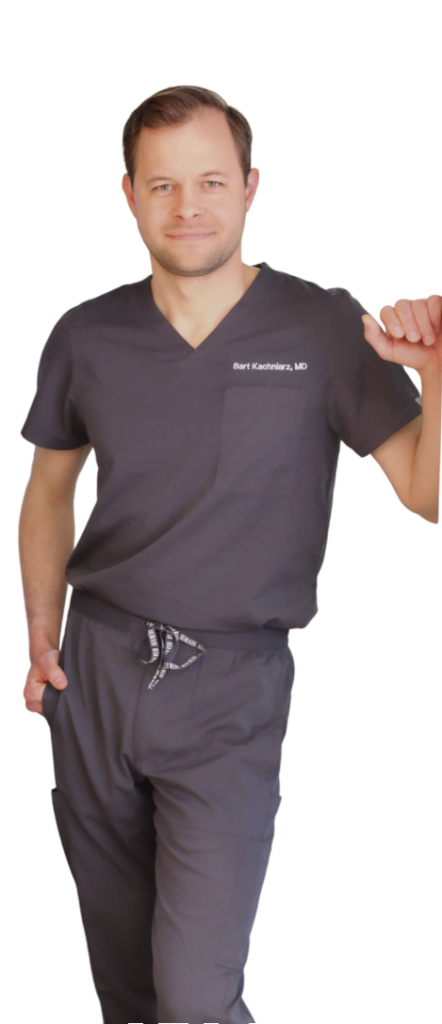
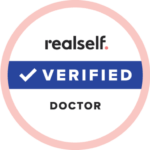
Meet Your Doctor
With years of experience in the field of plastic surgery, Dr. K has built a reputation as one of Miami’s premier plastic surgeons.
His journey into medicine began with a passion for helping others and a keen eye for detail—qualities that have defined his career ever since, but what truly sets him apart is his genuine care for each patient who walks through our doors.
SEE WHAT WE CAN DO FOR YOU
Preparing for the Surgery
It is important to prepare properly before undergoing buccal fat removal surgery (or any operation for that matter). Before undergoing the treatment, you need to understand what will be involved and what you should expect from the experience.
The first step is to consult with a qualified facial plastic surgeon like Dr. Kachniarz who can assess your individual needs and determine if cheek reduction surgery would be an appropriate solution.
Dr. Kachniarz will ask questions about your medical history, including any allergies or existing health conditions that could affect your ability to undergo the plastic surgery.
During the consultation, he will also examine your face and neck area to accurately determine how much fat tissue needs to be removed. It’s important for patients to understand the risks associated with buccal fat removal as well as its potential side effects before making a final decision on whether to proceed with the operation.
You may also be asked to plan for the surgery by taking the following steps:
- Getting a lab test or medical evaluation to confirm you are fit for surgery.
- Quitting smoking at least two to four weeks before the scheduled procedure date.
- Eating healthily, soft foods, and getting plenty of rest.
- Avoiding alcohol consumption to minimize the risk of complications during and after the operation.
- Avoiding aspirin, anti-inflammatories, blood thinners, and other drugs which can increase bleeding.
Taking these proactive measures are essential in helping ensure optimal results following buccal fat removal procedures.

Recovery and Results after Getting cheek reduction surgery
Recovery time is relatively short. Most patients return to work and their usual daily routine within a few days of the procedure. It takes about 2 to 3 weeks to make a full recovery, and several more weeks for any residual swelling to go down.
After the procedure, you will be instructed to stay on a liquid diet for the first few days until your doctor tells you it is safe to introduce solid foods again.
You will also be given a special mouth rinse to help prevent infection and to maintain good oral hygiene. You can generally brush your teeth after the operation, but will need to avoid the incision areas around the upper gum line.
Dr. Kachniarz will give you instructions to follow during the recovery period, which may include:
- How to care for the surgical site after surgery.
- Medications to take to help with the healing, reduce the risk of infection, and ease pain.
- Instructions to maintain an overall healthy lifestyle which includes regular exercise (once recovered) and a balanced diet to optimize the results following cheek reduction surgery.
- Avoiding medications that could interfere with the healing process, including blood thinners and aspirin products.
The results of cheek reduction will be visible right away, although it may take a few weeks or even months for all swelling to completely subside and final results to become apparent.
You will typically experience some soreness, bruising, numbness, or tightness in the treatment area following surgery, but these symptoms should go away with time as healing progresses.
Buccal fat removal is long-lasting and permanent as long as patients maintain a healthy lifestyle. If you are considering surgery, it is vital to understand exactly what you are getting into beforehand, so that you know what kind of recovery period and results that can be expected after undergoing the procedure.
How Much Does Buccal Fat Removal Cost in Miami?
The approximate cost of buccal fat removal in Miami ranges between $2,000 and $4,000. There are a number of financing options available, including PatientFi, Alphaeon, and CareCredit.
The cost varies depending on the individual clinic and surgeon, based on their experience, geographical location, and quality of the facilities provided. The practice of Dr. Bart Kachniarz in Miami is intentionally designed to deliver the most cutting-edge technology and world-class surgical skills at competitive prices.
Buccal fat removal is considered a permanent solution for reducing chubby cheeks and facial fullness, so if this is something you’re considering for a long-term improvement, then the initial investment is worth it. Keep in mind that it’s unlikely to be covered by health insurance since it’s typically seen as elective cosmetic surgery.
Feel free to book a consultation today, and we can discuss your desired outcome in more detail, as well as answer any questions.

Frequently Asked Questions
Can You Get Rid of Your Buccal Fat Pads Naturally?
Generally, you can not get rid of buccal fat naturally. While it is possible to reduce superficial facial fat through diet, exercise, sleeping well, deep buccal fat can not be rid of using such methods.
Are Buccal Fat Removal Results Permanent?
Following the recovery period, during which time swelling will continue to subside, the results are permanent. The procedure does not prevent weight gain/loss in other parts of the face, but the relative sculpting effect of buccal fat removal is permanent.
What Is Buccal Fat Pad Removal?
Buccal fat removal involves excision of small amounts of the buccal fat pad, which lays along the upper jaw line. The procedure is designed to address roundness of the cheek area and may generally be performed under local anesthesia (numbing medication).
How Do You Minimize Healing Complications After Buccal Fat Removal?
Maintaining proper oral hygiene is absolutely critical as your incisions heal inside the mouth. You should continue to brush your teeth, avoiding the incision areas. You will also be prescribed an antibacterial mouthwash, and be asked to consume soft foods for a few days after the procedure.
References
[1] American Society for Plastic Surgeons. https://www.plasticsurgery.org/cosmetic-procedures/buccal-fat-removal
[2] Cleveland Clinic. https://my.clevelandclinic.org/health/treatments/23396-buccal-fat-removal
SEE WHAT WE CAN DO FOR YOU
